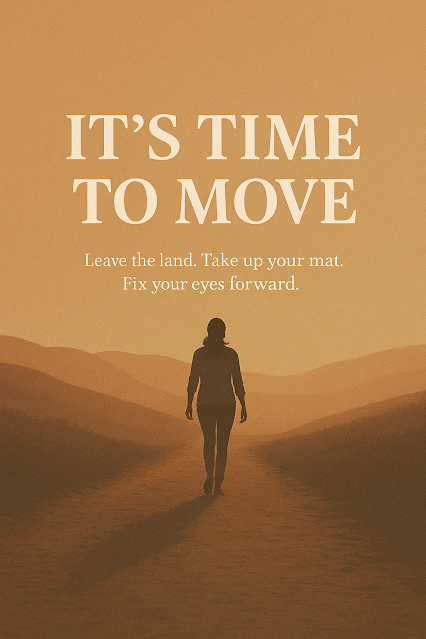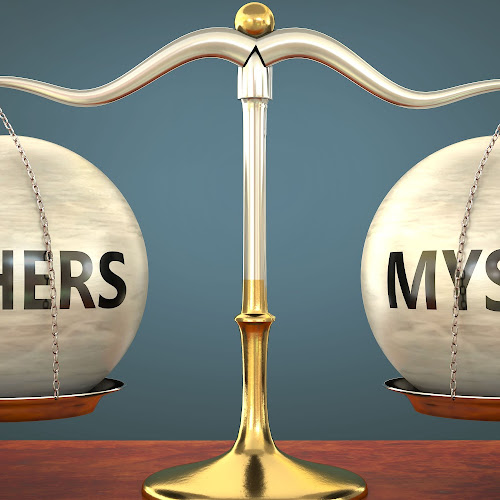I cut off my hair this week. Not because I wanted a fresh new look or was feeling bold, but because I didn’t have much of a choice. Over the past few months, I’ve been shedding hair like crazy. And not just a few extra strands in the shower. I’m talking about losing nearly half of it. It’s one of those side effects that crept in after getting sick. I had Covid back in December, and just like the first time I had it, the aftermath hit my hair hard.
When I sat down in my stylist’s chair, my plan was to keep my length and go a little blonder for summer. I was ready to lighten things up and get ready for a Florida vacation next month. But, he put the brakes on that idea real quick.
“Your hair’s too fragile to bleach,” he said. “If it starts falling out more, you’re going to be mad at me.”
"I would never get mad at you for my hair falling out," I protested.
He bent down to show me he was serious, eye to eye. "When you are staring in the mirror at your bald head, you're gonna be angry. And it ain't gonna be at me."
He wasn’t wrong.
Then he suggested something I hadn’t planned on: “We're going to have to cut it. It'll grow back, but we need to start fresh with what’s left.”
And he was right about that too.
I’ve been through this before. When you lose half your hair and try to hang onto the long look, it doesn’t exactly turn out glamorous. It ends up looking like a weird poofy helmet on top that thins out into scraggly ends. It’s not the look I'm going for at forty-eight years of age. Or any age, really.
So we cut it. Not as a style choice, but as an act of letting go of damage, of accepting reality, and of setting expectations. It’s shorter than I planned, but healthier. And it’s a step forward, because now I am ready for the new growth.
And isn't that just how life works? So often we have to let go of the past, let go of the damage, in order to set our sights on what's ahead. My new growth isn't here yet, but I know its coming.
It reminds me of all I've had to let go of these past few years. My hair is just another thing, and it is easy to let go of hair. Letting go of the past is a lot harder.
Have you ever thought about that? How your past can sneak in, trying to shame you into believing you’re too broken, too damaged, too far gone to move forward? Maybe it’s the echo of someone who hurt you. Maybe it’s the voices of people who never saw your worth, never believed in your potential. And maybe, especially after something like divorce, you’ve carried that weight for so long it started to feel like your identity.
But here’s the truth: it’s not.
You weren’t created to live stuck. You weren’t meant to sit in the ruins of what was. Maybe, like me, you’ve wasted time letting your situation define you. You’ve settled into the pain like it was permanent. But no more.
God isn’t calling you based on your past. He’s calling you into your future. Not because of who you were or what you've endured, but because of who you are becoming.
The past? It no longer has a say when Jesus walks in the room.
Leave The Land
Goodbyes are never easy. Most of us resist them, not because we don’t believe there’s healing ahead, but because the weight of what we've carried feels familiar. We struggle to release the hurt, the memories, the pieces of ourselves that were shaped by pain. Even sorrow can start to feel like home when we’ve lived in it long enough. We cling to emotional wounds, not because we want to stay broken, but because letting go feels like losing a part of our story. But the truth is, God never asked us to make a home in our heartache.
God calls us to leave those places, even when they feel like home. Not always physically, but emotionally. Spiritually. Internally.
Just look at Abraham. God told him to leave everything familiar—his country, his people, his father’s household—and go to a land that hadn’t even been revealed yet. Abraham obeyed. He stepped out in faith, not because it made sense, but because it was obedience. And that step became the beginning of something new.
Now hear me clearly: I’m not encouraging you to leave a marriage that God is still calling you to stay and fight for. This isn’t about walking out when restoration is still possible.
I’m talking about the emotional land you’ve been stuck in. The land of fear, shame, bitterness, or heartbreak. I’m talking about staying in the shadows of what broke you, long after the moment has passed. For some of us, especially after something as painful as divorce, it’s easy to confuse that pain with identity. We live in it. We pitch our tents in it. We start believing it’s who we are and where we’ll always be.
But it isn’t.
If you’re already separated or divorced, and you’re still dwelling in the place of emotional trauma that divorce caused, I can say with full confidence: God is calling you out of that place without hesitation. It doesn’t matter what landed you there. It doesn’t matter who left or who failed. What matters is that your Father does not want His daughters living in darkness.
He is calling you forward. It might be a long road, and the healing may come slowly—step by step, breath by breath—but taking that first step is worth everything.
Because like Abraham, the real blessing begins the moment you say yes to the unknown. The moment you dare to believe there’s a promised land beyond the pain. The past may have shaped you, but it doesn’t get to define you. Your future is in God’s hands, and He’s not done writing your story.
Take Up Your Mat
In John 5, we meet a man who had been lying by the Pool of Bethesda for thirty-eight years. Thirty-eight years of waiting. Of hoping. Of hurting. And of watching others receive the healing he longed for.
The pool was believed to hold healing power when the waters were stirred, but this man never made it in time. “I have no one to help me,” he said. “Every time I try, someone else gets there before me.” When Jesus approached him, He didn’t begin with a miracle. He began with a question:
“Do you want to get well?”
At first glance, that might seem like an obvious question. But if we listen closely, it’s far more profound.
The man answered Jesus with a history lesson. He talked about the past, what others had done, how life had shortchanged him, why things hadn’t worked out. After 38 years, his focus was still locked on what had gone wrong. On what was missing. On what had already happened. His mind was fixed backward.
But Jesus wasn’t looking at the past. Jesus was focused on the future. His question wasn’t just about physical healing, it was an invitation to change the focus:
“Do you want to get well?”
In other words: What do you want your future to look like? Are you ready to step into something new, even if you’ve only known pain until now?
And then came the command that changed everything:
“Get up. Take up your mat and walk.”
It wasn’t just about physical motion. It was about mental and spiritual movement. Jesus was calling him to shift his gaze. To stop lying in the memories of what life had done to him, and start walking toward what life could be.
The mat he’d been lying on for nearly four decades had become more than a resting place. It had become an identity. A symbol of being stuck. And yet, Jesus didn’t just heal him. He told him to take that mat and carry it. Why? Because the man didn’t need to leave his past behind and forget about it completely. He needed to reclaim it. The mat wasn’t his weakness anymore. Now, it was a testimony.
It makes me ask myself, what mat have I been lying on? Replaying old wounds, old betrayals, old regrets? Maybe you're like me. What story have you been telling yourself about why your healing hasn’t come?
Jesus is still asking: “Do you want to get well?”
He’s not focused on what happened back then. He’s inviting you to look ahead. And when He says, “Take up your mat and walk,” He’s not just calling you to leave the place of your pain. He’s calling you to move forward with purpose, carrying a story that now points to grace instead of grief.
Fix Your Eyes Forward
Once you’ve left the emotional land of pain and taken up your mat to walk, there’s one more question to ask: Where are you going?
Because here’s the truth—you can move forward physically and still be stuck spiritually.
Life has a way of dragging us along whether we’re ready or not. The sun rises. The bills pile up. You go to work because you have to. You sell the house because you can’t afford it anymore. You step into a new season not because you chose it, but because circumstances forced your hand. And sure, life may be moving on, but that doesn’t mean you’re moving forward.
There’s a difference between being pushed by your situation and being led by your Savior.
Spiritual movement is intentional. It’s not something life does for you. It’s a decision—your decision—to follow Jesus. To step out of the shadows of what has happened to you, and into the light of what God is doing in you and through you.
That’s why true healing doesn’t come from a new zip code, a new job, or even a new relationship. Healing begins the moment you fix your eyes on the One who leads you forward, not because life forced you, but because you chose Him.
Hebrews 12:2 says, “Let us fix our eyes on Jesus, the author and perfecter of our faith.”
He is the constant. The compass. The steady hand that doesn’t just point to the future. He walks with us into it.
When Jesus healed the man at the Pool of Bethesda, He didn’t just say, “You’re healed, now go.” He said, “Get up, take your mat, and walk.” He called the man into motion. But even more than that, He called him into purposeful motion. He was saying, Don’t just move because life is happening. Move because I’m leading you.
So many of us are surviving. But Jesus is calling us to more than that. He’s calling us to follow.
The real mark of moving forward is not the miles we’ve traveled, it’s the direction of our gaze.
Are we letting life push us along? Or are we stepping forward, eyes fixed on Jesus, and hearts willing to follow?
Fix your eyes forward. Choose Him. And take the next step, not because you have to, but because you want to follow the One who brings healing with every move.








